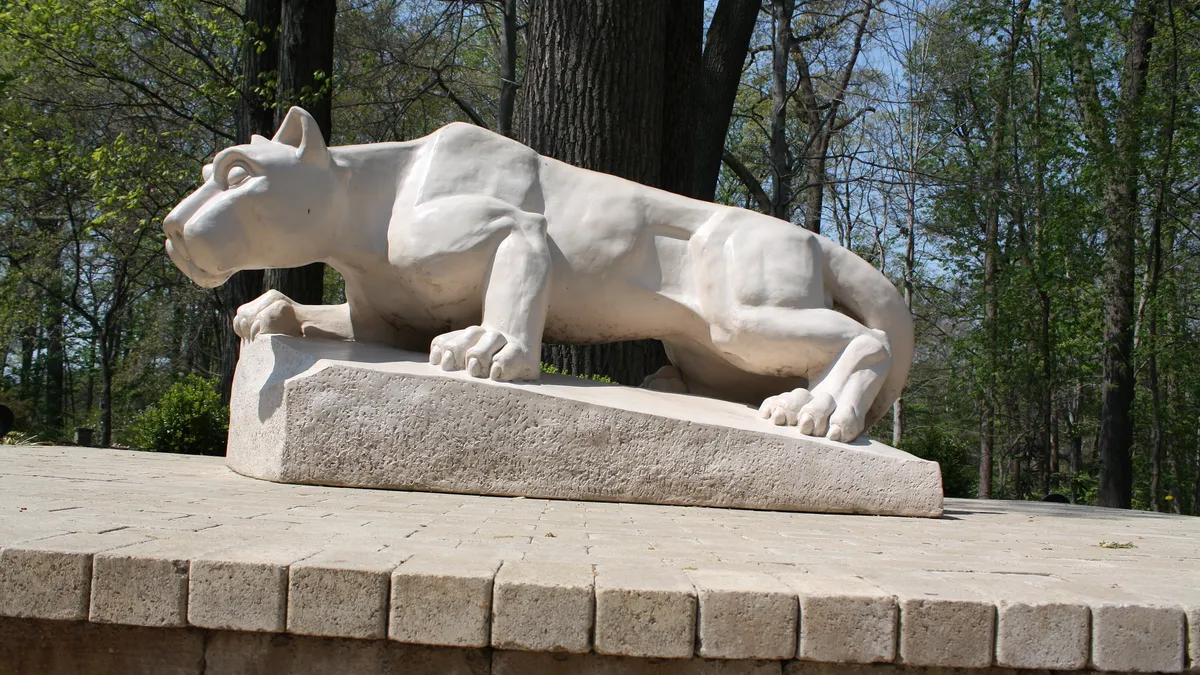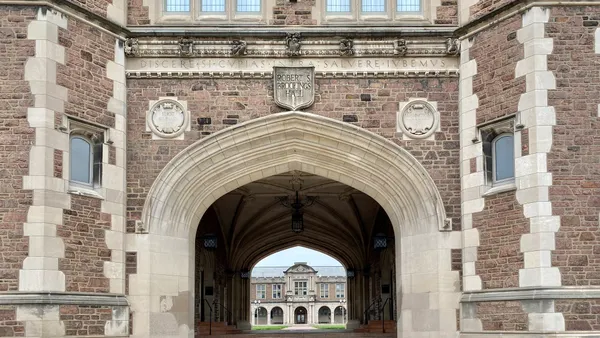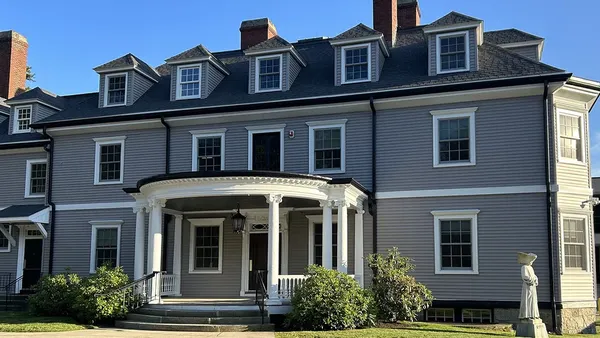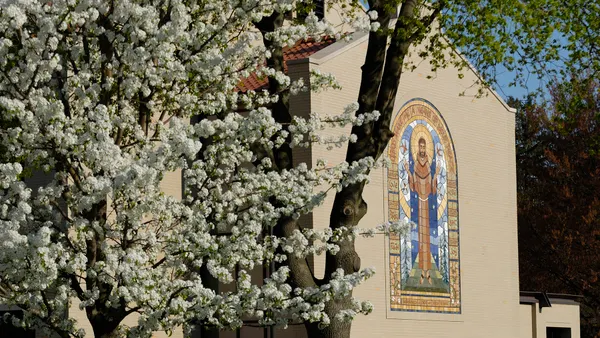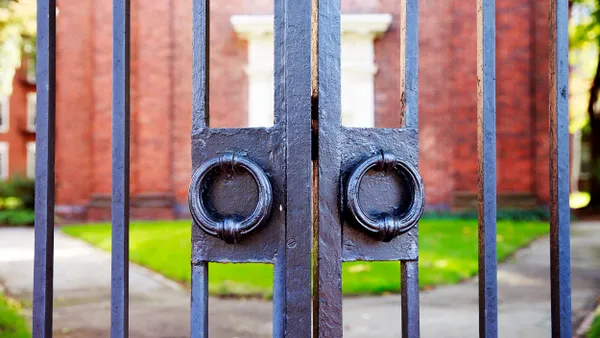Dive Brief:
- Pennsylvania State University officials are seeking to close seven of the institution's commonwealth campuses at the end of the 2026-27 academic year: the campuses in DuBois, Fayette, Mont Alto, New Kensington, Shenango, Wilkes-Barre and York.
- To continue operating, the campuses would require $40 million annually in financial support and overhead expenses and a $200 million investment in facilities — "resources that could be redirected to enhance and strengthen the campuses that remain," the recommendation report said.
- Penn State trustees have yet to vote on the proposal or schedule a meeting to do so. The university said Wednesday that it released the report only because the document had already been leaked to the media.
Dive Insight:
In February, Penn State President Neeli Bendapudi tasked a group of university officials with recommending which of its commonwealth campuses should close. Of Penn State's 19 undergraduate commonwealth campuses, Bendapudi directed the group to focus on the 12 smallest, noting that many of them were expected to face tough demographic trends in the coming years.
In their report, the group recommended keeping open and investing in only five of the campuses — Beaver, Greater Allegheny, Hazleton, Schuylkill and Scranton.
"Until 2010, population growth and demand for place-based higher education arguably justified continued investment in our existing ecosystem of Commonwealth Campuses," the report said. "However, the landscape of higher education and the demographic distribution across the Commonwealth have changed significantly, necessitating a strategic shift in Penn State's operations."
The recommendations cited several challenges facing Penn State’s commonwealth campuses, as well as higher education at large — financial shortfalls, maintenance backlogs, and enrollment declines due to demographic shifts and Pennsylvania’s saturation of colleges.
Between 2020 and 2024, fall headcounts across commonwealth campuses declined 12.4% to 23,257 students, according to institutional data.
The seven campuses recommended for closure enroll just 3.6% of Penn State's students and employ 3.4% of its faculty and 2.2% of its staff.
The report pointed to other colleges struggling with demographic trends, noting the recent branch campus closures at the University of Wisconsin, the abrupt bankruptcy of the University of the Arts in Philadelphia and the academic cuts at West Virginia University.
Bendapudi supported the recommendations in a Wednesday statement.
"The recommendation balances our need to adapt to the changing needs of Pennsylvania with compassion for those these decisions affect, both within Penn State and across the commonwealth, in part because of the two-year period before any campus would close," she said.
If the board approves the closures, the affected colleges would stop accepting new and transferring students after fall 2025. Bachelor’s degree students could continue their studies at their current campuses through the spring 2027 term, and all students would be able to finish their degrees at Penn State, including through its online college, the university said.
Penn State will offer affected tenure and tenure-track faculty "need-driven reassignments" to the remaining campuses. Nontenure faculty and staff will receive priority consideration when applying to internal jobs, the university said.
Bendapudi lamented the accelerated public release of the report, which she submitted to Penn State's board of trustees in late April.
“I am truly sorry that our community is learning of the recommendation through media coverage, rather than hearing about it with additional context directly from me or the board,” Bendapudi said. “I understand the concern this will cause on our campuses until the decision is finalized — during an already distressing time for those who may be affected."
David Kleppinger, the university's board chair, suggested a trustee leaked the plans and denigrated the move.
“It’s disappointing that a trustee or trustees have prioritized their own self-interests above both the best interests of the University we serve and the people these decisions will affect,” he said in a Wednesday statement. “This has only heightened emotions and created anxiety and uncertainty among the students, faculty, staff, alumni, and local communities we serve.”
The potential campus closures come on the heels of turbulent financial times for Penn State. At the start of 2024, Penn State leaders announced plans to eliminate almost $100 million from the university's fiscal 2026 budget, with $54 million in cuts coming from the commonwealth campuses.
Soon thereafter, Penn State cut 10% of the workforce at its commonwealth campuses through voluntary buyout offers. Penn State also consolidated 11 of its campuses under the leadership of four chancellors.
The chancellor of Penn State Brandywine, for example, now oversees the Mont Alto and York campuses as well. Should the newly released report be approved by trustees, two of those three campuses will be shuttered.


